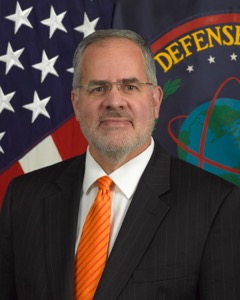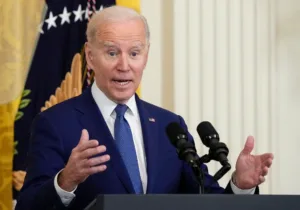In July 2013, two years after the Arab Spring began, I was asked during a panel at the Aspen Security Forum to assess the Syrian crisis and whether the United States and the West were responding in an adequate way. Given my role at the time as the Deputy Director of the Defense Intelligence Agency (DIA) and using information the Defense Department cleared for release, I described two very likely developments in Syria in the absence of external intervention.
First, even though the Islamic State or other variants of their name – ISIS, ISIL, Da’esh,- had not yet broken away from al-Qaida’s element in Syria, the Jabhat al-Nusrah Front, my conclusion was that the more extreme groups would gain more influence than the moderate opposition groups in Syria. These extreme groups included elements from al-Qaida in Iraq, former Ba’athists, al-Nusrah Front, and other Islamic extremist elements who would eventually become part of ISIL. If there were no outside intervention in Syria to support the moderate opposition, the extremist groups would gain more and more influence. Second, the extremist elements in Syria would not respect the international borders in the Levant because they viewed them as illegitimate. In other words, Anbar in Iraq, western Syria, eastern Syria, Lebanon, Jordan, and beyond all became part of the same territory in the eyes of the Islamist extremists. The Syrian crisis would not be contained within Syria’s borders. As obvious as these outcomes seemed, senior Defense Department officials were unhappy with the description of likely events in Syria as it did not appear to comport with the policy narrative that the Syrian crisis would soon end.
I do not bring up my comments at the forum in order to boast about how these predictions have come true. Rather, I raise this example in order to remind us the critical reason why these predictions came true: what you believe is inexorably linked to how you behave.
The Islamic extremists that would eventually break from the al-Nusrah Front and become ISIL know what they believe in, and they were then and continue to be willing to die for their beliefs. The moderate rebel groups, who were fighting for a wide array of grievances such as water rights, were not prepared then nor presently to fight and to die for those grievances. Surviving and ultimately accepting refugee status became a better alternative than to stay and fight for a democratic Syria. These moderate groups did not believe in their cause as much as the extremists believed in their cause. A strong belief in a vision of a state built upon a particular interpretation of Islam, no matter how vile that interpretation is, and across territories that Western colonialists had conquered and artificially separated not only helped ISIL win battles in Iraq and Syria but also inspired recruits to join, to kill, and to die for this movement. The Islamic extremists, whether IS or al-Qaida, are explicit and clear in what they believe in. The moderates’ vision and beliefs do not demand such loyalty or dedication.
Now the United States and the West are in a more direct war against ISIL and the other Islamic extremists. We appear ill prepared to fight that war because there is confusion about what we believe in. There is an ideological bankruptcy in Western society, writ large. Empty churches in Europe and apostasy in America are a reflection of this bankruptcy. During the Cold War, we believed that capitalism, democracy, and our freedoms were better than the Soviet Union’s despotism, and this belief gave us the unity and strength necessary to outlast Marxist communism. Today, what are the beliefs that will give us the unity and strength necessary to win this war against ISIL and other extremists? Do we believe in what Hollywood shows us about America and the West? Do we still believe in religious freedom, freedom of speech, or the rule of law? Or are we more interested in thinking we can isolate ourselves from those intent on radically altering our way of life? If we are confused about our beliefs, then we will be unwilling to fight and to die, and we will lose this war just as the moderate groups are on the losing end in Syria today.
David R. Shedd held a variety of top level positions in the U.S. intelligence community including as acting director of the Defense Intelligence Agency until January 2015 when he retired from government service after nearly 33 years. He is now a national security consultant, a visiting distinguished fellow in the Heritage Foundation’s Davis Institute for National Security and Foreign Policy and Adjunct Professor at Patrick Henry College.
Photo Credit: U.S. Navy; U.S. 5TH FLEET AREA OF OPERATIONS (Oct. 10, 2015) An F/A-18F Super Hornet assigned to the Red Rippers of Strike Fighter Squadron (VFA) 11 launches from the flight deck of the aircraft carrier USS Theodore Roosevelt (CVN 71). Theodore Roosevelt was deployed in the U.S. 5th Fleet area of operations supporting Operation Inherent Resolve, strike operations against Islamic State as directed, maritime security operations and theater security cooperation efforts in the region. (U.S. Navy photo by Mass Communication Specialist 3rd Class Anna Van Nuys/Released)







 Sponsor a student for Christianity & National Security 2024
Sponsor a student for Christianity & National Security 2024